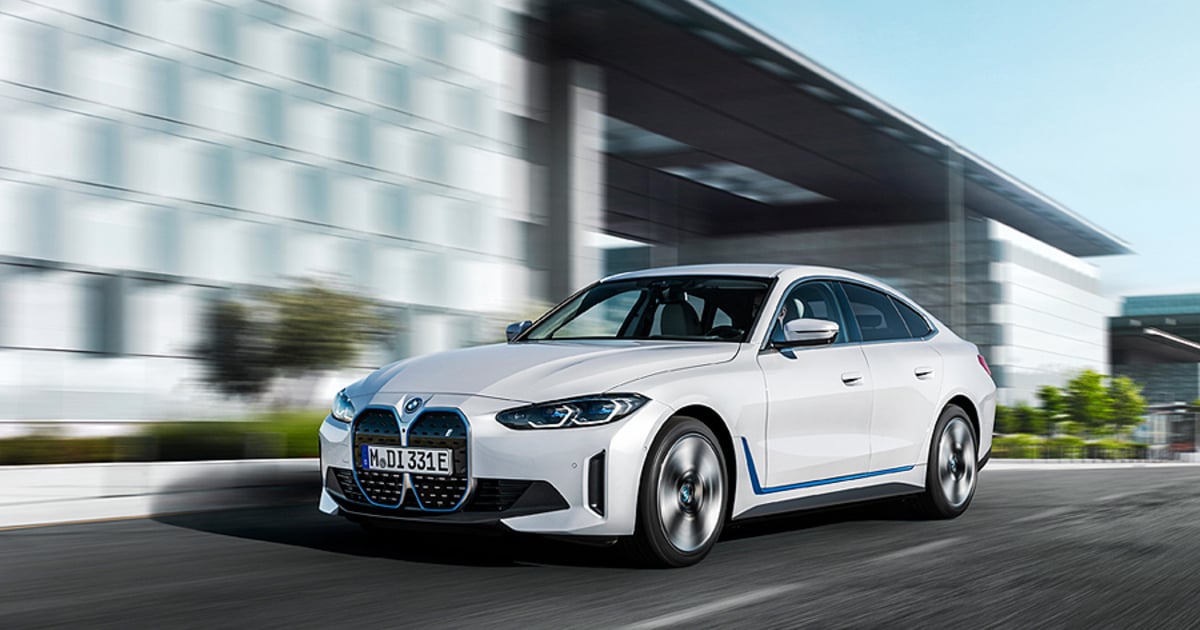
Tesla Inc. has parlayed price cuts into a formidable lead over its luxury competitors in the first quarter of 2023.
The Austin, Texas-based automaker’s first-quarter sales volume surged 55 percent from last year, and it sold more than double the volume of No. 2 BMW.
But the segment’s historic favorites are fighting back against the new front-runner with their own fleets of electric vehicles.
Mercedes-Benz’s EV sales have more than quadrupled in the first three months. The brand’s four EQ-branded models accounted for 9.7 percent of sales in the first quarter, including vans.
EV “product is driving momentum,” Mercedes-Benz USA sales boss Senol Bayrak told Automotive News on Wednesday. “We have now a full lineup of these cars available — from SUV to sedan.”
To boost EV adoption, Mercedes will launch a six-week marketing campaign starting April 22. The Mercedes EQE SUV, which debuted last month, will be the centerpiece of the blitz.
Meanwhile, electrified vehicles (which include plug-in hybrids) accounted for nearly 17 percent of BMW’s 82,466 U.S. deliveries in the quarter.
BMW Group sales boss Pieter Nota said electric models will be among the “main growth drivers” globally this year.
While Tesla does not break out sales by market, the Automotive News Research & Data Center estimates the automaker delivered 170,000 sedans and crossovers in the first quarter, accounting for 28 percent of total U.S. luxury segment sales.
But Tesla’s market momentum comes at the expense of its hefty margins. The automaker has axed sticker prices globally several times this year.
While some analysts pin the discounting on competitive pressure as the industry brings competitive EVs, Tesla CEO Elon Musk framed it as a move toward affordability.
“There is plenty of demand for our products, but if the price is more money than people have, that demand is irrelevant,” Musk wrote on Twitter.
Registration data, a lagging indicator of deliveries, more accurately exemplifies Tesla’s momentum.
According to data from Experian, Tesla reported 95,829 U.S. registrations through February, up 35 percent from a year ago. Meanwhile, BMW registrations ticked 5.4 percent higher to 56,756.
The entire U.S. luxury sales sector rose 23 percent to 616,970 cars and light trucks in the first quarter, outperforming the broader industry’s 8.4 percent bump.
In the first quarter, BMW sales rose 12 percent, and the automaker secured a more than 14,000 vehicle advantage over No. 3 Lexus. The Toyota luxury brand delivered 68,251 vehicles, up 6 percent from a year earlier.
BMW, which commanded a 13 percent share of the luxury segment, extended its lead over German rival Mercedes-Benz with amore than 20,000-vehicle advantage.
Mercedes’ sales of 61,531 were down 1.2 percent from the prior year as demand for the aging GLC — the brand’s best-seller last year — cratered 78 percent. The compact crossover receives a redesign in the second quarter.
Mercedes’ top-end models are proving popular among Americans. The brand’s AMG performance models surged 55 percent in the quarter, while G-Class luxury offroader deliveries grew 40 percent.
Among other luxury brands, Audi sales rocketed 49 percent to 52,763 vehicles in the quarter.
Volvo Cars saw January-to-March sales up 16 percent to 26,483. The uptick was powered mainly by the Swedish automaker’s electrified models, which accounted for 29 percent of total sales during the quarter.
Porsche is expected to report quarterly deliveries on April 17, but the Automotive News Research & Data Center estimates the sports car maker delivered 17,440 vehicles, up 34 percent from a year ago.
Genesis sales of 13,769 were up 17 percent compared with the first three months of last year, while domestic rival Infiniti’s sales surged 40 percent to 15,757.

